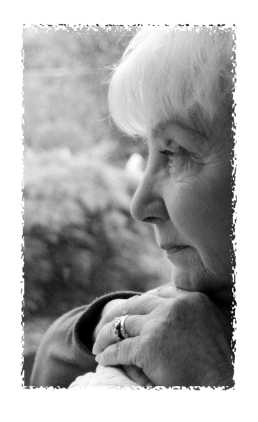Frequently asked questions
Who can stay at l'Accalmie?
Our services are available for women, with or without children, that experience conjugal or family violence and need shelter. All unclear or irregular requests are subject to a 48-hour evaluation period; either it will be approved, or the person will be referred to another resource.
How long may I stay at l'Accalmie?
The length of your stay will vary according to your needs.
Are there any costs?
All our services are free.
What should I bring with me?
Bring your clothes, personal belongings, medication, prescriptions, medical insurance card, identity cards and all relevant documents needed for different procedures (birth certificate, marriage contract, insurance contract, rental contract, etc.…)
Will my stay at l'Accalmie remain confidential?
Your presence at l'Accalmie is confidential. Women here are perfectly safe. The house's address is not public, and the personnel will not reveal your presence or identity to anyone (policemen, lawyers, social workers, etc...) without your personal consent.
Can I stay at l'Accalmie more than once?
Yes, according to your needs and if you have previously respected the rules, the other women and the personnel during your first stay.
If I stay at l'Accalmie, will my children be able to go to the same school?
Yes, don't worry, we will bring your children to their respective schools.
Can family and friends visit me at l'Accalmie?
No. The reason for this is to ensure confidentiality. Visits will have to take place outside l'Accalmie.
I am experiencing conjugal violence but I do not wish to stay at l'Accalmie. Can you still help me?
Yes, all our services are also offered to women that do not wish to stay.
My child witnessed violence, can l'Accalmie help them?
Yes, we have personnel that are specifically trained to work with children.
Am I a victim of conjugal violence?
Conjugal violence is expressed in many different forms. It can be physical, psychological, verbal, financial or sexual. In other words, violence is not just being abused physically. Here are a few signs indicating that you may be a victim: intimidation, threats, denigration, manipulation, etc. Bouts of violence is often preceded by extreme tension and followed by a honeymoon period. If you believe you are a victim of conjugal violence, please contact us and we will provide help.
Does my partner have controlling behaviour?
The following checklist demonstrates the wide variety of tactics that are used by partners with controlling behaviours. It will help you identify the ones that may have been used in your relationship.
As you go through the checklist, mark the ones that are familiar to you, then check your answers to see how many elements you have marked. Individually, many of them may seem insignificant, but your answers may reveal important patterns.
Don't forget that this list of controlling behaviours is not a definitive one, covering only a fraction of the tactics that are possible; so please add any that you have experienced that are not on the list. You will also find that some do not apply to you and have nothing to do with your partner.
Control Through Criticism
Control Through Moodiness, Anger, and Threats
Control Through Overprotection and "Caring"
Control Through Denying Your Perceptions
Control by Ignoring Your Needs and Opinions
Control Through Decision Making
Control Through Money
Control Through Shifting Responsibility
Control Through Limiting Contact with Other People
Control Through Physical Intimidation
Control Through Sexual Humiliation









From When Love Goes Wrong, Susan Schechter and Ann Jones, Harper Collins Publishers, New York, 1992.
For the document you can download the following PDF.
